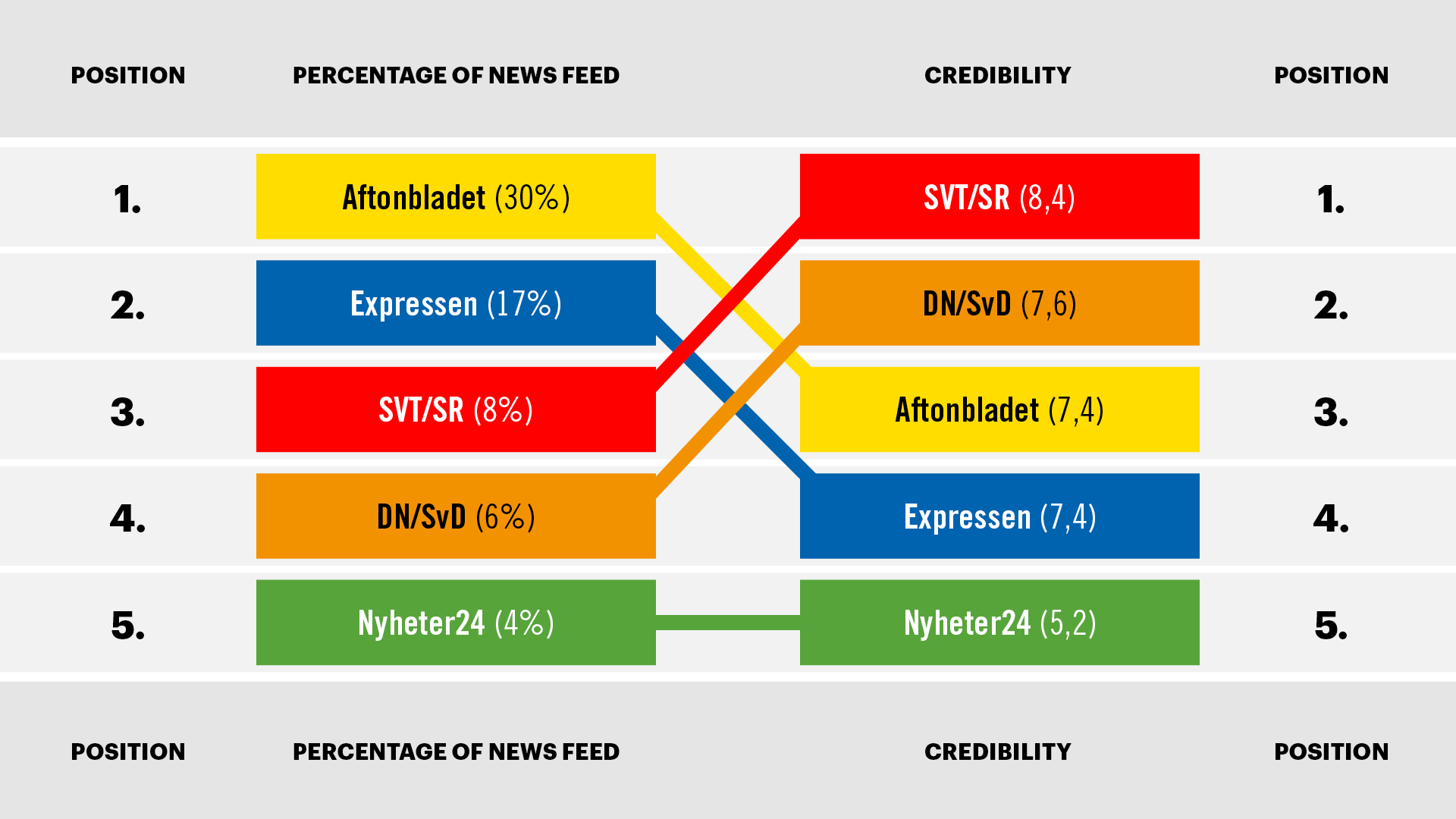Around 2,500 teenagers from across Sweden have been helping researchers investigate the credibility of political news in the run up to the Swedish election. The News Evaluator Election Special was an experiment designed to find out more about where Swedish teenagers get their digital news on election issues from and how reliable they perceive the news to be.
Preliminary results from the experiment show that the majority of news in Swedish teenagers’ digital news feeds in the run up to the election on 9 September came from established media.
“It’s great to see that young people’s news feeds were not dominated by alternative facts from troll farms,” said Thomas Nygren, associate professor at Uppsala University and researcher responsible for the experiment.
In the News Evaluator Election Special, upper secondary school pupils from across Sweden reviewed political news in their digital news feeds in the week prior to the election. In total, the pupils reviewed 1790 news items. Preliminary results show that Aftonbladet (a large Swedish evening newspaper) was the source of almost a third of the news, followed by Expressen (another evening newspaper), SVT/ SR (the Swedish public service TV and radio broadcasters), DN / SvD (both daily newspapers) and the online news site Nyheter24. Of these, news from SVT/SR received the highest ratings for their credibility (see Figure 1).

The students’ reviews also included a small number of untrustworthy pieces of news from “alternative” news sites.
In an initial questionnaire, pupils were also asked which election issues were of most interest to them. The top five issues were healthcare, the environment, school/education, immigration, and gender equality/LBGT. The results of the experiment also show that these issues weren’t always the most prevalent in their news flows.
Tool for source criticism
The students reviewed the news using a digital tool that guided them step by step through the review process. As well as contributing to real research, the experiment was designed to teach young people a research-based method for online source criticism.
”The next step is to look at the results in more depth to investigate how credibility differs between different election issues. We also want to evaluate whether the News Evaluator has helped pupils to develop their ability to critically assess sources of information,” said Thomas Nygren.
The News Evaluator Election Special is a citizen science project run in collaboration between the non-profit association VA (Public & Science), Uppsala University and RISE Interactive research institute. The project is funded by Vinnova and Uppsala University.
Thomas Nygren was invited to present the preliminary results from the project at the breakfast seminar run by Swedish Radio on After-election analysis 2018 – how the media managed to reach young people (in Swedish only). The results have also been featured on breakfast television and in other Swedish media.
The News Evaluator Election Special builds on the success of the News Evaluator experiment that was run as part of the 2017 European Researchers’ Night activities in Sweden.
For more information, see www.nyhetsvarderaren.se or contact Fredrik Brounéus, Project Manager for the News Evaluator.

